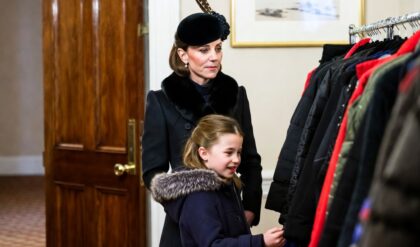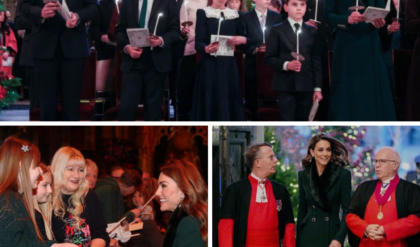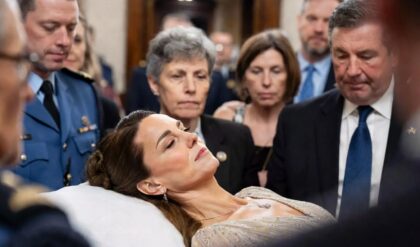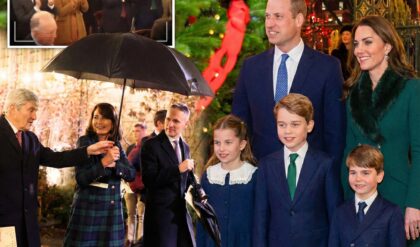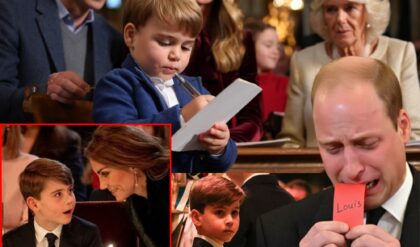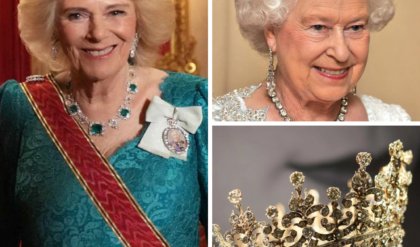The Harry Potter franchise, a cultural juggernaut since the release of J.K. Rowling’s first novel in 1997, is facing a new wave of controversy as HBO prepares its television reboot, slated for a 2026 or 2027 premiere. Fans worldwide are expressing outrage over the casting of the series, particularly the selections of Paapa Essiedu as Severus Snape and rumors of a Black actress playing Hermione Granger. Many are calling for a boycott of Rowling and the series, demanding a recast if the current actors remain. This uproar, amplified on platforms like X, reflects deeper tensions within the fandom over Rowling’s involvement, the direction of the series, and the legacy of a beloved story. This article delves into the reasons behind the backlash, the specific casting controversies, and the broader implications for the wizarding world’s future.
The Casting Controversy
HBO’s Harry Potter series, which will adapt each of Rowling’s seven books into a season over a decade, announced its first wave of cast members in April 2025. Among them, Paapa Essiedu, a British actor of Ghanaian descent known for I May Destroy You, was cast as Severus Snape, a role immortalized by Alan Rickman in the original films. The announcement sparked immediate backlash, with fans flooding HBO’s social media accounts with complaints. Many argue that Snape, described in the books as inclinable as having “sallow skin” and “greasy black hair,” should be portrayed by a white actor to remain faithful to the source material. Posts on X reveal a sentiment of betrayal, with users claiming the casting “changes the dynamics” of Snape’s story, particularly his bullying by James Potter, which some fans fear will take on unintended racial undertones.
Adding fuel to the fire, rumors suggest that a Black actress may play Hermione Granger, following the precedent set by Noma Dumezweni in the 2016 stage play Harry Potter and the Cursed Child. While Rowling supported Dumezweni’s casting, stating that Hermione’s race was never specified in the books, the potential casting has reignited debates. Fans point to textual descriptions like “white face” in Prisoner of Azkaban as evidence of Hermione’s whiteness, though others argue the books leave room for interpretation. The lack of an official announcement hasn’t stopped speculation, with fans on X predicting a repeat of past controversies over diverse casting.
Other casting choices have drawn less ire but still contribute to the unrest. John Lithgow’s selection as Dumbledore raised eyebrows due to his American background, though this has been overshadowed by the Snape and Hermione debates. Janet McTeer as McGonagall and Nick Frost as Hagrid have been more warmly received, yet the overall direction of the series has left many fans disillusioned.

Why Fans Are Angry
The backlash against the current casting stems from several grievances:
Fidelity to the Source Material: Many fans insist that the series, billed as a “faithful adaptation,” should adhere to the physical descriptions in the books. Snape’s casting, in particular, has been labeled a “massive fail” on X, with users arguing that a Black actor in the role undermines the story’s historical context within a predominantly white, British wizarding world.
Racial Dynamics and Storytelling: Some fans worry that casting a Black actor as Snape alters the narrative’s subtext. Snape’s bullying by James Potter, a key part of his backstory, could be interpreted through a racial lens, which they argue was not Rowling’s intent. Similarly, a Black Hermione might shift the focus of her “Mudblood” persecution, potentially conflating blood purity with race in ways that complicate the story’s themes.
Rowling’s Involvement: Rowling’s role as executive producer has long been a point of contention due to her controversial views on transgender issues. Fans critical of her stance see the casting choices as either a capitulation to “woke” pressures or a failure to address their concerns about authenticity, further eroding trust. Some on X have called for a boycott, arguing that supporting the series financially benefits Rowling, whom they accuse of using her platform to harm marginalized communities.
Fan Expectations vs. Reality: The Harry Potter fandom has a deep emotional connection to the original films and books, with many viewing the casting as a betrayal of their childhood memories. The rapid spread of discontent on social media has amplified these sentiments, creating a vocal movement demanding a recast.
The Boycott Movement
The call to boycott Rowling and the series has gained traction globally, particularly on X, where fans have organized under hashtags like #BoycottJKRowling and #RecastHarryPotter. Some users have declared they will “never watch” the series, citing both the casting and Rowling’s involvement as dealbreakers. One X post likened the situation to the backlash against Rachel Zegler’s casting in Disney’s Snow White (2025), warning of a similar fate for the Harry Potter reboot. Others have urged Warner Bros. and HBO to “pull the plug” before production escalates, fearing a repeat of the Fantastic Beasts franchise’s decline, which saw its planned five films reduced to three amid poor box office returns.
The boycott movement isn’t solely about casting. Rowling’s history of transphobic comments, including her celebration of a 2025 U.K. Supreme Court ruling against trans women’s rights, has fueled calls to shun her work. Fans argue that consuming Harry Potter content directly funds her activism, with one X user stating, “Supporting this show means supporting her attacks on the LGBTQ+ community.” This sentiment echoes broader debates within the fandom about separating art from artist, a question made more complex by Rowling’s active role in the series.
Responses from Stakeholders
HBO and Warner Bros. have largely sidestepped the controversy. Casey Bloys, HBO’s chief content officer, has emphasized that the series will focus on the books’ themes of “friendship, resolve, and acceptance,” dismissing concerns about Rowling’s views as an “online conversation” not reflective of the show’s content. The network has defended Rowling’s involvement, noting her “right to express her personal views” and highlighting her contributions to the project’s authenticity.
Rowling herself has responded with characteristic defiance. In April 2023, she sarcastically addressed boycott calls on X, saying she had “taken the precaution of laying in a large stock of champagne.” Her recent comments have been more pointed, with reports suggesting she has criticized the original film trio—Daniel Radcliffe, Emma Watson, and Rupert Grint—for their support of trans rights, further alienating fans who idolized the actors.
The cast has also faced scrutiny. Paapa Essiedu, in a move that stunned fans, signed an open letter supporting the LGBTQ+ community, alongside actors like Eddie Redmayne and Katie Leung, distancing himself from Rowling’s views. This action, while praised by some, has been seen by others as a betrayal, with X users mocking Rowling for “losing control” of her own franchise. John Lithgow, cast as Dumbledore, expressed surprise at the backlash, telling The Times he didn’t expect Rowling’s involvement to be “a factor at all,” though he remains committed to the role.
Implications for the Harry Potter Franchise
The controversy threatens to overshadow the series before it even begins filming, scheduled for summer 2025 at Warner Bros. Studios Leavesden. If the boycott gains momentum, it could impact viewership and profitability, especially given the series’ reported $125 million per-season budget, comparable to Game of Thrones. A flop could tarnish the Harry Potter brand, valued at £20 billion, and signal a decline in its cultural relevance, especially as competitors like Netflix invest in original fantasy content.
The casting uproar also risks alienating a significant portion of the fandom, potentially fracturing it further. Fans who support the diverse casting may clash with those demanding fidelity, creating a divide that mirrors broader cultural debates over representation in media. The series’ success hinges on its ability to appeal to both new viewers and longtime fans, a balance HBO has yet to prove it can strike.
A Path Forward?
To salvage the series, HBO could consider recasting Snape and clarifying Hermione’s role, though this risks further backlash from those who support the current choices. Alternatively, the network could engage with fans directly, addressing their concerns while emphasizing the story’s universal themes. Rowling’s involvement remains the sticking point; reducing her role might appease some critics, but her creative control makes this unlikely.
The Harry Potter series could also lean into its diverse casting as a strength, using the expanded format to explore themes of prejudice and acceptance in ways the films couldn’t. A Black Hermione, for instance, could deepen the narrative around Muggle-born discrimination, while Essiedu’s Snape might offer a fresh perspective on his outsider status. However, this approach requires careful execution to avoid accusations of tokenism or narrative distortion.
Conclusion
As of 03:55 PM on May 7, 2025, the Harry Potter fandom stands at a crossroads. Global fans’ demands to boycott J.K. Rowling and recast the HBO series reflect deep-seated frustrations over fidelity, representation, and the author’s polarizing presence. The casting of Paapa Essiedu as Snape and rumors of a Black Hermione have ignited a firestorm, amplified by Rowling’s controversial views on transgender issues. While HBO remains steadfast, the boycott movement threatens the series’ success and the franchise’s legacy. Whether the wizarding world can weather this storm—or succumb to the same fate as Fantastic Beasts—remains uncertain. For now, fans wield their wands as weapons, casting a spell of dissent that could reshape Harry Potter’s future.
